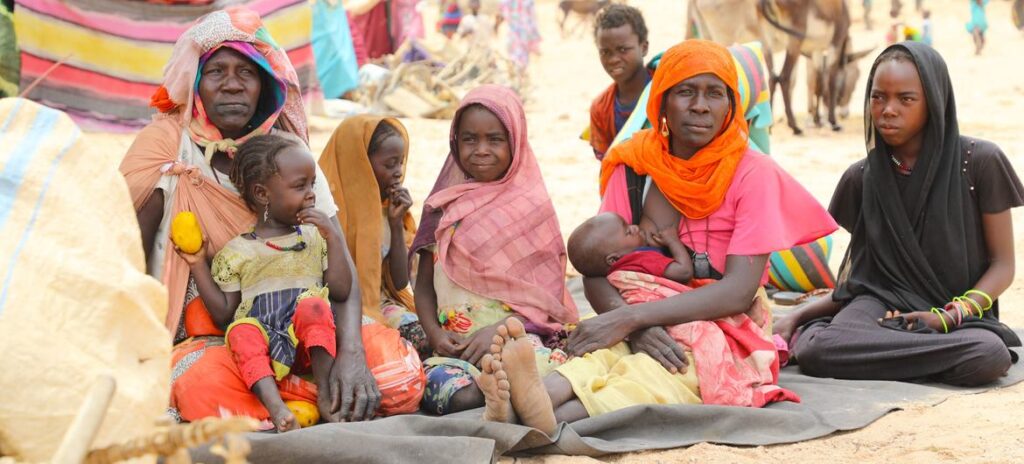The UN Security Council should urgently act to protect civilians in western Sudan from unlawful attacks and starvation, the Human Rights Watch (HRW) said Friday.
HRW said in a press release that the Security Council should pressure the Rapid Support Forces (RSF) to end their unlawful attacks against civilians, including on displaced persons camps, and both warring parties should stop blocking humanitarian aid.
“The Security Council should renew and expand the arms embargo on Darfur to cover the entire country and impose sanctions against the warring parties’ leadership, especially the RSF, for serious violations of international humanitarian law,” HRW said.
UN officials have warned that civilians trapped amid fighting between RSF and the Sudanese Armed Forces (SAF), and forces allied to both in North Darfur and the Kordofan, were facing starvation.
“The Security Council needs to confront the Rapid Support Forces over their ongoing siege and deliberate and indiscriminate attacks on civilians, and press both warring parties over blocking access to aid,” said Laetitia Bader, the deputy HRW Africa director
“Council members should expand the arms embargo and impose targeted actions against warring parties’ leadership, while setting a clear time frame for action,” she said.
RSF on August 11attacked a camp for the displaced in the North Darfur State capital, El Fasher, which its forces have besieged for over a year. The Office of the United Nations High Commissioner for Human Rights said the RSF killed at least 57 civilians on that day and at least 32 more in attacks between August 16 and 20. Most of the civilians killed on August 11 were in the Abu Shouk displacement camp, one of the last remaining civilian enclaves.
On August 13, the UN Security Council issued a statement demanding an end to the siege and access for aid. However, the council did not commit to concrete measures against parties that continue to commit serious violations of international humanitarian law.
In early August, the World Food Program (WFP) warned that it had been unable to enter El Fasher for over a year and that its cash transfers could not meet people’s needs given the massive price increases because of the siege.
Civilians in the city told HRW in mid-August that they had resorted to eating animal fodder. Several soup kitchens – a lifeline for many – have been forced to close over the last month. On August 20, a drone attacked a WFP convoy heading to Melit, 60km north of El Fasher, destroying three trucks.
RSF has imposed a siege on El Fasher since April 2024, preventing both suppliers and humanitarian aid groups from accessing the city. While international humanitarian law does not prohibit sieges of opposition forces, a siege cannot include deliberate attacks on civilians or starvation of the civilian population, both of which are war crimes.
In mid-April, the RSF carried out a large-scale attack on the Zamzam displacement camp, south of El Fasher. The forces indiscriminately killed civilians, including health care workers, burned civilian buildings, detained civilians, and carried out widespread pillage, forcing hundreds of thousands to flee.
In July, Médecins Sans Frontières (MSF) reported that civilians in El Fasher and in Zamzam had faced “systematic patterns of violence that include looting, mass killings, sexual violence, abductions, starvation and attacks against markets, health facilities, and other civilian infrastructure” since April 2024. MSF found that RSF and their allies systematically targeted non-Arab communities, particularly ethnic Zaghawa.
Civilians who fled those attacks told HRW that they had to dig foxholes to shelter from incessant shelling and bombings. They said the warring sides subjected them to more abuse as they fled. A young man who fled El Fasher on August 11 said he saw two men shot dead and three injured as they fled the city.
On August 12, the Sudan International Nongovernmental Organisations Forum warned that there was “no safe passage out of the city, with roads blocked and those attempting to flee facing attacks, taxation at checkpoints, community-based discrimination and death.”
A local volunteer who fled El Fasher on August 11 said, “The most important thing is to find ways to evacuate people from this place. And then make sure food and medical supplies can go in.”
There was also fierce fighting in the Kordofan, where SAF airstrikes have killed civilians and hit civilian infrastructure, including sites hosting displaced people. The UN Office for the Coordination of Humanitarian Affairs and other groups reported a large-scale RSF attack on villages in North Kordofan State in mid-July, saying it killed “at least 300 people – including children and pregnant women”.
In July, the Integrated Food Security Phase Classification warned that the fighting was causing severe food shortages.
HRW urged the Security Council to assess the extent to which the UN has bolstered civilian protection since an October 2024 report by the Secretary-General, António Guterres. The assessment, it said, should include a public briefing by the UN and African Union missions and special envoys on preventing genocide ahead of the UN General Assembly’s annual gathering of heads of state in New York.
The council is expected to decide on the renewal of the arms embargo on September 12 and revisit the idea of deploying a protection-of-civilians mission to Sudan, a long-overdue step that Guterres has reportedly been unwilling to endorse.




